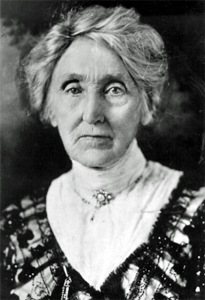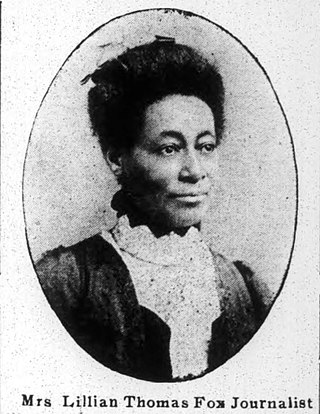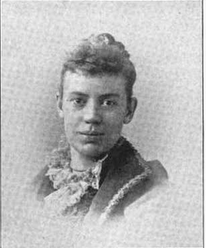Related Research Articles
The Battalion is the student newspaper of Texas A&M University. Started in 1893 as a monthly publication, it continues to this day, now as a weekly print and daily online paper. The Battalion is entirely student-run and covers the university and surrounding Bryan-College Station area.
The Texas State Historical Association (TSHA) is an American nonprofit educational and research organization dedicated to documenting the history of Texas. It was founded in Austin, Texas, United States, on March 2, 1897. In November 2008, the TSHA moved its offices from Austin to the University of North Texas in Denton, Texas. In 2015, the offices were relocated again to the University of Texas at Austin.
The National Federation of Press Women(NFPW) is a United States–based organization of professional women and men pursuing careers in the field of communications, including electronic, broadcast and print journalism, public relations, marketing, advertising, freelancing, graphic design, digital media and photography. They are also educators and authors of all genres. Part of the coalition founding the National Women's History Museum, the NFPW supports literacy and women's rights as well as freedom of information and advocates for First Amendment issues.

Aurelia Isabel Henry Reinhardt was an American educator, activist, and prominent member and leader of numerous organizations. She completed her undergraduate studies at the University of California, Berkeley, her doctoral dissertation at Yale, and studied as a fellow at Oxford. After teaching at the University of Idaho, the Lewiston State Normal School, and with the Extension Division of the University of California, Reinhardt was elected president of Mills College in 1916, and held the position until 1943, making her the longest serving president in the history of the school.
Hispanic and Latino women in America have been involved in journalism for years, using their multilingual skills to reach across cultures and spread news throughout the 19th century until the common era. Hispanic presses provided information important to the Hispanic and Latin American communities and helped to foster and preserve the cultural values that remain today. These presses also "promoted education, provided special-interest columns, and often founded magazines, publishing houses, and bookstores to disseminate the ideas of local and external writers."

The Texas Women's Hall of Fame was established in 1984 by the Governor's Commission on Women. The honorees are selected biennially from submissions from the public. The honorees must be either native Texans or a resident of Texas at the time of the nomination.

Mary Eleanor Brackenridge was one of three women on the first board of regents at Texas Woman's University, the first women in the state of Texas to sit on a governing board of any university. She was active in women's clubs and was a co-founder of the Woman's Club of San Antonio. Brackenridge was a leader in Texas suffrage organizations and helped get the Nineteenth Amendment to the United States Constitution passed. She was the first woman in San Antonio to register to vote. Although it's the Brackenridge name in Texas that is associated with wealth, philanthropy and achievement, Brackenridge qualified as a member of the Daughters of the American Revolution through her mother's lineage. Miss Brackenridge was a founding member and the first Regent of the oldest DAR chapter in San Antonio, the San Antonio de Bexar Chapter, established on December 11, 1902.

Women's suffrage was established in the United States on a full or partial basis by various towns, counties, states, and territories during the latter decades of the 19th century and early part of the 20th century. As women received the right to vote in some places, they began running for public office and gaining positions as school board members, county clerks, state legislators, judges, and, in the case of Jeannette Rankin, as a member of Congress.

Lillian May Parker Thomas Fox was an African American journalist, clubwoman, public speaker, and civic activist in Indianapolis, Indiana, who rose to prominence in the 1880s and 1890s as a writer for the Indianapolis Freeman, a leading national black newspaper. In 1900, Fox joined the Indianapolis News, becoming the first African American columnist to regularly write for a white newspaper in Indiana. She was inducted into the Indiana Journalism Hall of Fame in 2014.
Vivian Anderson Castleberry was an American newspaper editor, journalist, and women's rights activist, who was elected to the Texas Women's Hall of Fame in 1984.

Mary Ellen Lawson Dabbs was a Texas physician, women's rights activist and writer. Dabbs was an advocate of women's suffrage and of the temperance movement. She was an officer in the Texas Equal Rights Association (TERA). Dabbs also believed that African American women deserved the right to vote in the same manner as white women.
Bride Neill Taylor was an American writer, educator and civic leader. She was known for her short stories written in the tradition of realism. Taylor was also known for her non-fiction writing, which included writing about women's issues. She worked to preserve the studio of Elisabet Ney as a museum, and later wrote a biography of Ney. She was also an early member of the Texas State Historical Association.

The Texas Federation of Women's Clubs (TFWC) is a non-profit women's organization in Texas which was founded in 1897. The purpose of the group is to create a central organization for women's clubs and their members in Texas relating to education, the environment, home and civic life, the arts and Texas history. Seventy-percent of public libraries in Texas were created through the work of the members and clubs of the TFWC.

The Dallas Equal Suffrage Association (DESA) was an organization formed in Dallas, Texas in 1913 to support the cause of women's suffrage in Texas. DESA was different from many other suffrage organizations in the United States in that it adopted a campaign which matched the social expectations of Dallas at the time. Members of DESA were very aware of the risk of having women's suffrage "dismissed as 'unladylike' and generally disreputable." DESA "took care to project an appropriate public image." Many members used their status as mothers in order to tie together the ideas of motherhood and suffrage in the minds of voters. The second president of DESA, Erwin Armstrong, also affirmed that women were not trying to be unfeminine, stating at an address at a 1914 Suffrage convention that "women are in no way trying to usurp the powers of men, or by any means striving to wrench from man the divine right to rule." The organization also helped smaller, nearby towns to create their own suffrage campaigns. DESA was primarily committed to securing the vote for white women, deliberately ignoring African American women in the process. Their defense of ignoring black voters was justified by having a policy of working towards "only one social reform at a time."
The Texas Equal Rights Association (TERA) was the first woman's suffrage association to be formed state-wide in Texas. The organization was founded in 1893 and was an affiliate of the National American Woman Suffrage Association. The TERA was meant to "advance the industrial, educational, and equal rights of women, and to secure suffrage to them by appropriate State and national legislation." It was also an answer to Texas Governor James Stephen Hogg, who had stated publicly in a trip to the north that women's suffrage "had not reached Texas". The organization was firmly "non-sectarian", stating that "it has no war to wage on religion, church or kindred societies."

The Texas Equal Suffrage Association (TESA) was an organization founded in 1903 to support white women's suffrage in Texas. It was originally formed under the name of the Texas Woman Suffrage Association (TWSA) and later renamed in 1916. TESA did allow men to join. TESA did not allow black women as members, because at the time to do so would have been "political suicide." The El Paso Colored Woman's Club applied for TESA membership in 1918, but the issue was deflected and ended up going nowhere. TESA focused most of their efforts on securing the passage of the federal amendment for women's right to vote. The organization also became the state chapter of the National American Woman Suffrage Association (NAWSA). After women earned the right to vote, TESA reformed as the Texas League of Women Voters.
The Texas Association of Women's Clubs (TAWC) is an umbrella organization of African American women's clubs in Texas. It was first organized as the Texas Federation of Colored Women's Clubs in 1905. The purpose of the group was to allow clubs to work together to improve the social and moral life of people in Texas. The club also spoke on topics of interest to black women in the United States.

Pauline Periwinkle was the pen name of S. Isadore Callaway an American journalist, poet, teacher, and feminist of the long nineteenth century. She served as the first corresponding secretary of the Michigan Woman's Press Association and was a staff member of Good Health, Battle Creek, Michigan. Using the pen name of "Pauline Periwinkle", Miner was the founder and editor of the "Woman's Century" page of The Dallas Morning News. She was "one of the most widely-read columnists in the early twentieth century."
References
- ↑ Hall, Jacquelyn Dowd (1993). Revolt Against Chivalry: Jessie Daniel Ames and the Women's Campaign Against Lynching (Revised ed.). Columbia University Press. p. 25. ISBN 9780231082839.
- ↑ Hunt, Donna (20 February 2016). "Prominent Drummer Got Her Start at Terrell School". Herald Democrat. Retrieved 5 April 2016.
- 1 2 3 4 5 Anderson, H. Allen (15 June 2010). "Texas Press Women". Handbook of Texas Online. Texas State Historical Association. Retrieved 5 April 2016.
- 1 2 3 Grider, Sylvia Ann; Rodenberger, Lou Halsell, eds. (1997). Texas Women Writers: A Tradition of Their Own. Texas A&M University Press. p. 4. ISBN 978-0890967652.
- ↑ Wesepape, Betty Holland (2004). Lone Star Chapters: The Story of Texas Literary Clubs. Texas A&M University Press. p. 73. ISBN 9781585443246.
- ↑ McArthur, Judith N. (15 June 2010). "Mohl, Aurelia Hadley". Handbook of Texas Online. Texas State Historical Association. Retrieved 5 April 2016.
- 1 2 "A Guide to the Press Women of Texas Records, 1909-2003". Briscoe Center for American History. Texas Archival Resources Online. Retrieved 5 April 2016.
- ↑ "Pen Women Meet" . Galveston Daily News. 21 June 1906. Retrieved 5 April 2016– via Newspaper Archive.
- ↑ Thurman, Nita. "Texas Womans University". Denton County Historical Commission. Retrieved 5 April 2016.
- ↑ Thompson, Joyce (15 June 2010). "Texas Women's University". Handbook of Texas Online. Texas State Historical Association. Retrieved 5 April 2016.
- ↑ Bradley, Patricia (2005). Women and the Press: The Struggle for Equality . Northwestern University Press. pp. 214. ISBN 9780810123137.
texas press women.
- 1 2 "Louise Hill Presided At Press Women's Meet" . Silsbee Bee. 17 November 1966. Retrieved 5 April 2016– via Newspaper Archive.
- 1 2 Gracy, II, David B. (2010). The State Library and Archives of Texas: A History, 1835-1962. University of Texas Press. pp. 82–83. ISBN 9780292779051.
- 1 2 Peirce, Kate (2000). "Texas Professional Communicators, 1893–Present". In Burt, Elizabeth V. (ed.). Women's Press Organizations, 1881-1999. Greenwood. p. 214. ISBN 9780313306617.
- ↑ Vaughn, Stephen L., ed. (2008). Encyclopedia of American Journalism. Routledge. ISBN 9781135880194.